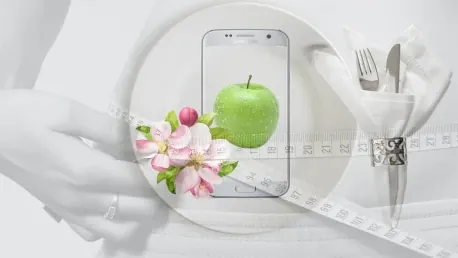There’s no easy way to say this: poor nutrition is one of the most pressing challenges the world is facing today. The malnutrition rates are a clear indication that this crisis is spiraling out of control—currently, 1.9 billion adults are overweight or obese and 462 million are underweight.
Who’s to blame? The weight-loss industry sat up and took notice: they believe individuals should take exclusive responsibility for their excess pounds or for following the cult of skinny.
But when the definitions of healthy body weight keep changing every so often, what do you aim for? And how do you stop feeling guilty after indulging in food, skipping a workout or going on an extreme diet that backfired?
We have all been there. Doubted ourselves after that third slice of pizza. Missed an opportunity to run our weight off. Believed a juice cleanse is a magical cure-all. But while guilt might be a powerful motivator, that’s a path you don’t want to follow—not when it can severely impact your mental well-being.
So, what if there was an app that empowers effective behavior change and removes the feelings of failure on your way to success?
Walmart and engagedIN joined forces with that mission: to engage consumers and employees with chronic health conditions to address their diet issues without feeling like they did something wrong.
At the Annual Health 2.0 Fall Conference in Silicon Valley, it became official. David Hoke – Senior Director of Associate Health and Well-Being at Walmart and Kyra Bobinet – CEO and Founder of neuroscience design firm engagedIN revealed Fresh Tri™—a healthy behavior app that works with AI algorithms to better identify and change bad food habits.
Making healthy lifestyle changes and sticking to them might be your ultimate goal. But we know that’s easier said than done. It requires much more than having an avocado toast for breakfast or getting off the bus one stop early. In what follows, we take a look at how this new practice app for science-based eating habits can support your healthy living journey.
Say ‘Hello’ to Fresh Tri
You certainly browsed through the wide selection of lifestyle apps that constantly appear in the App Store and promise to make a difference in your life. That’s why you’re probably wondering by now what power does this app hold to actually rewire your brain and finally break your bad eating habits—when all the other lifestyle apps you have tried so far lead you to the same results.
Fresh Tri invites you to test-drive healthy habits by following “a positive approach based on the brain science of habit formation”—and until you find what truly works for you, there is no fail; just practice. Every time you notice a habit doesn’t fit in your daily routine, you iterate instead of sinking into guilt.
The aim is to build a brain taxonomy to identify how your habits actually shape you. You will be able to observe your eating behavior and understand what path leads to changes in your food habits.
All of this is possible by applying neuroscience to train your brain. Let’s get to grips with it.
How Neuroscience Can Help You Change a Habit for Good
It is common knowledge that the more often we perform an action, the more it gets physically wired into our brains. But if we’re honest about it, humans are hardly in control of their daily actions. We’re good at forming habits—and it’s especially easy to revert to old bad ones—but then these very same repetitive routines allow us to run on autopilot nearly half of the time.
That’s why you need the same commitment and consistency to disrupt the status quo. And this is where neuroscience comes into play. According to research on the nervous system, there are certain steps you can take to break a bad habit and replace it with a new one:
- Recognize the trigger for your bad habit;
- Wire a new healthy or positive habit to override the bad-habit trigger.
In this sense, rebuilding your habits comes down to paying close attention to what’s triggering your behavior. You also shouldn’t go all out right from the beginning—instead, make the change small enough for it to be unfailingly consistent. To close the deal and pursue the new routine attentively, you need to ride the motivational wave whenever possible—when your motivation is high, don’t just resume to wishful thinking; take immediate action!
To put the above into work, just take a look at how BJ Fogg, director of the Stanford Behavior Design Lab, addressed the situation.
He set his goal: drink more tea. Then, he started to anticipate when motivation was at its peak. This way, he became more aware of his daily fluctuations in motivation and did the hardest things when he was feeling the best—he bought all sorts of tea, got an electric kettle to boil water, and put the items on accessible places around the kitchen. Every time he was in the room, his drink choice wasn’t a head-scratcher any longer.
Practice Makes Progress
Now that you understand how neuroscience can lead your journey to healthier lifestyle decisions, it’s time to use it to your advantage.
Fresh Tri is a mindset shift designed to outline the paths you can take to get to the results you want—at your own pace. It not only serves as a daily reminder to add healthy habits to your routine but also as a cue to tweak and refine your progress until you adopt a better lifestyle.
But remember: It all begins with uncovering the power to commit—and a helping hand along the way might be just the push forward you have been looking for.
So, will giving healthy habits a Fresh Tri end up influencing healthcare? We’ll leave it up to you to decide.









